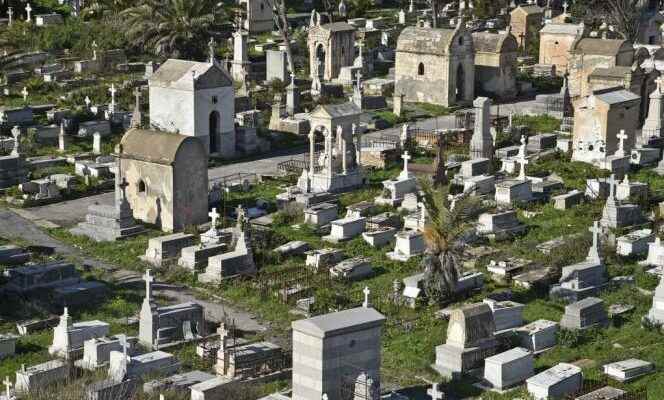To not miss any African news, subscribe to the newsletter of the “World Africa” from this link. Every Saturday at 6 a.m., find a week of news and debates covered by the editorial staff of the “World Africa”.
Ouail Laabassi is proud of his latest discovery: a dozen soldiers’ graves “died for France”lined up facing the sea, eaten away by brambles. “We are going to submit a renovation request to the French Ministry of the Armed Forces”says the project coordinator of the Friends of the Cemeteries of Saint-Eugene (ACSE), an association for the safeguarding of the largest European necropolis in Algeria – renamed at independence Bologhine, after the name of the founder of Algiers.
The structure, which brings together families of repatriated Algerians and volunteers, has already managed to convince the French government to finance the restoration of a military square and the war memorial, built after the First World War in the Jewish part of the Bologhine cemetery. Cost of work in progress: 115,000 euros. “Military graves are the business of the French army”recalls Ouail Laabassi.
Since the departure of the pied-noir families in 1962, the situation of European cemeteries has turned into an administrative imbroglio between France and Algeria. Sixty years after independence, the question still arises: whose responsibility is it to preserve the 314 funeral spaces that still exist – compared to nearly a thousand at independence – but for the most part in a pitiful state? Vandalized, nibbled away by illegal constructions, to the point of being threatened with destruction. As in Aïn Milla, in the Aurès, where the Jewish and Christian squares were razed in 2018 by real estate developers without the knowledge of the municipality.
“Every day, graves disappear. We must hurry to save what remains to be saved”press Jean-Jacques Lion, president of the Collective safeguard cemetery Oranie (CSCO), which intervenes on nearly 200 funeral places, distributed in the west of Algeria.
The construction site is huge
Even in Bologhine, nicknamed the Père-Lachaise of Africa for its abundant funerary art and the illustrious personalities who have made it their final home, everything is in tatters. Obligatory passage of the French leaders during their official visit, the entrance and the first alleys of the cemetery are relatively well maintained. But by climbing the steps – less and less passable – the visitor discovers an eighteen-hectare site, clinging to a hill overlooked by the basilica of Our Lady of Africa, which is decomposing.
You have 67.99% of this article left to read. The following is for subscribers only.
